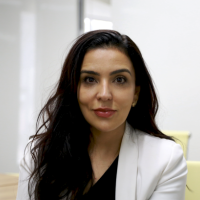After COP28, the G20 summit and the lead-up to COP30 will undoubtedly lay the ground for further discussions on the necessity of green investment in developing countries, where a significant portion of the world's population lives. Despite a dip in 2020, private capital funds focusing on climate strategies in developing countries are regaining momentum, with $2.4 billion raised by mid-2023. However, this is a drop in the ocean compared to the $2.4 trillion per year by 2030 deemed necessary by economists Vera Songwe and Nicholas Stern for effective climate-related investment in these regions. In an extensive LSE report, the authors note that developed countries have failed to fulfill their promise of providing $100 billion annually for climate finance by 2020, as agreed at various Climate Change Conferences (COPs), has led to a loss of trust. The goal is now expected to be reached in 2023, three years late, mainly due to increased funding from multilateral development banks. Direct contributions from developed countries have yet to grow significantly since 2016, and there are concerns about the effectiveness of this funding.
Sovereign issuers’ importance is gaining traction, and Latin America is at the forefront, with seven countries in the region, including Chile, with its significant $30 billion issuance. In this global context of financial challenges, Brazil's entry into the green, social, sustainable, and sustainability-linked bond (GSSSB) market stands out, especially given its role as a major oil producer. Brazil's recent $2 billion issuance, which garnered $6 billion in orders, highlights the robust investor appetite for green initiatives. The Brazilian Treasury reported that investors received an annual yield of 6.5%, higher than the benchmark U.S. Treasury bond. This rate marks the lowest for new issuances in nearly ten years. Investor’s optimism is in light of President Lula's commitments to environmental sustainability, contrasting sharply with the rampant deforestation seen under his predecessor, Jair Bolsonaro. While deforestation rates have decreased in the first half of this year, they remain alarmingly high.
This development in Brazil is a microcosm of the broader need for green finance globally. As the world reflects on the outcomes of COP28, and attention starts shifting towards the forthcoming G20 summit and to COP30, Brazil’s success story serves as a benchmark, showing significant investor appetite for sustainable investments in developing countries. However, as highlighted above, the overall global investment in such initiatives, particularly private capital, still falls short of the necessary levels. Brazil's successful bond issue can be seen as both an inspiration and a call to action: it proves the viability and attractiveness of sustainable investments in emerging markets, but it also highlights the need for a more substantial and concerted effort globally to meet the vast financing requirements of the green transition.
Brazil's recent entry into sustainable bonds marks a pivotal move in global sustainable finance, especially significant as other Latin American countries have already taken similar steps. This development adds crucial momentum to the ongoing shift towards green finance, coinciding with the critical discussions held during COP28 and the approaching G20 summit under Brazil’s presidency. Although Brazil's involvement occurred later than its regional peers, it further emphasizes the urgent global need for enhanced commitment to sustainable financing.








